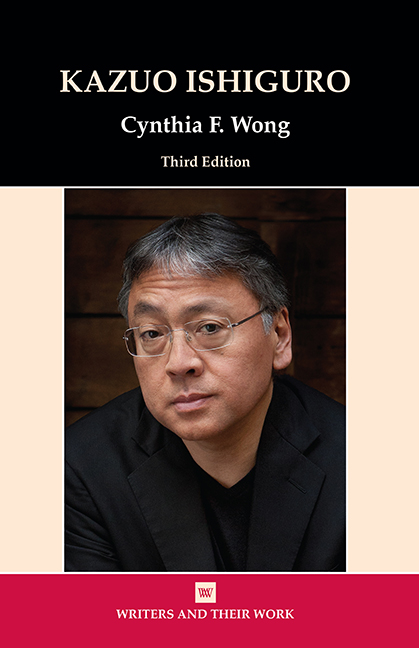Book contents
- Frontmatter
- Contents
- Acknowledgements
- Preface to the Third Edition
- Biographical Outline
- Abbreviations and References
- Introduction
- 1 Ishiguro as an International Writer
- 2 Reading the Novels
- 3 Narrative and Memory: A Pale View of Hills
- 4 Deflecting Truth in Memory: An Artist of the Floating World
- 5 Disclosure and ‘Unconcealment’: The Remains of the Day
- 6 Seizing Comprehension: The Unconsoled
- 7 Odd Failures of Guardianship in When We Were Orphans and Never Let Me Go
- 8 Parody and Performance in Nocturnes
- 9 Cloaked Memories in The Buried Giant
- Notes
- Select Bibliography
- Index
7 - Odd Failures of Guardianship in When We Were Orphans and Never Let Me Go
- Frontmatter
- Contents
- Acknowledgements
- Preface to the Third Edition
- Biographical Outline
- Abbreviations and References
- Introduction
- 1 Ishiguro as an International Writer
- 2 Reading the Novels
- 3 Narrative and Memory: A Pale View of Hills
- 4 Deflecting Truth in Memory: An Artist of the Floating World
- 5 Disclosure and ‘Unconcealment’: The Remains of the Day
- 6 Seizing Comprehension: The Unconsoled
- 7 Odd Failures of Guardianship in When We Were Orphans and Never Let Me Go
- 8 Parody and Performance in Nocturnes
- 9 Cloaked Memories in The Buried Giant
- Notes
- Select Bibliography
- Index
Summary
One leaf lets go, and
then another takes
the wind.
At the end of Ishiguro's fifth novel, When We Were Orphans (2000), the narrator Christopher Banks is briefly reunited with his mother, from whom he has been separated for over forty years. The frail elderly woman, Diana Roberts, is under the care of religious benefactors in ‘Rosedale Manor’ in Hong Kong, and she is playing a solitary game of cards when Banks walks up to her. He notes that her game entails ‘following some odd system of her own’ (WO 326). When winds blow her cards onto the grass, Banks collects them for her and is told by a grateful and smiling Diana, ‘ ‘‘Myself, I like to leave it until many more cards have accumulated on the lawn. Only then do I go to gather them, all in one go, you see. After all, they can't fly away off the hill altogether, can they?’’ ‘ (WO 326). As in all of Ishiguro's carefully crafted novels, a seemingly innocuous remark – framed rhetorically – carries a great deal of significance to a novel's meaning. Banks's notice of Diana's ‘odd system’ is an ironic self-assessment that characterizes the whole of his life; Diana's preference for gathering her cards ‘all in one go’ indicates that ‘accumulation’ may be more fortifying than running after one card at a time. Such metaphors for search and retrieval of loss, whether tangible or abstract, populate both When We Were Orphans and Never Let Me Go (2005).
Both novels develop a protagonist who is orphaned or who is left alone in the world. In Christopher Banks's case, an idyllic childhood in Shanghai is painfully disrupted with his parents’ concurrent disappearances when he is ten years old. He is sent to England and lives with an aunt who supposedly leaves him a generous endowment so that he is able to become a celebrated London detective. As he entrenches himself in combating evil in the world by solving some of the most heinous crimes against humanity, Banks develops the esteem that he sought when he was repatriated to England as a child. He eventually returns to what he believes is the scene of the crime – the international settlement in Shanghai – to solve his parents’ mysterious disappearances.
- Type
- Chapter
- Information
- Kazuo Ishiguro , pp. 81 - 103Publisher: Liverpool University PressPrint publication year: 2019



